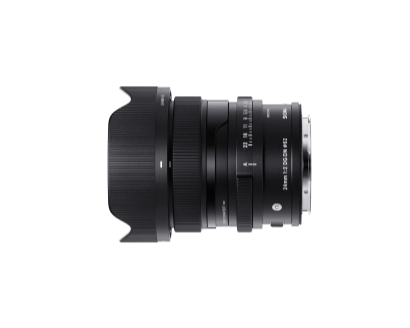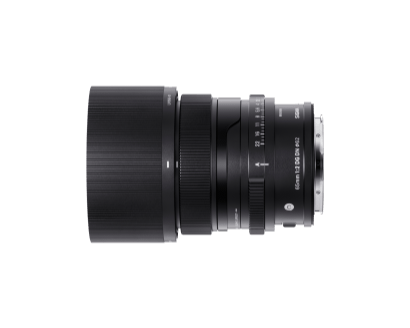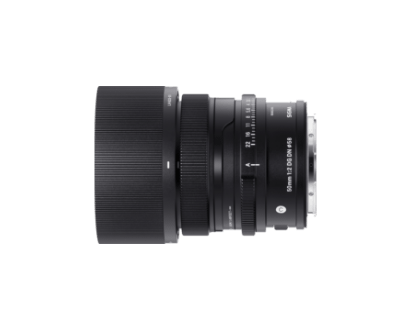SIGMA 24mm F2
DG DN | Contemporary
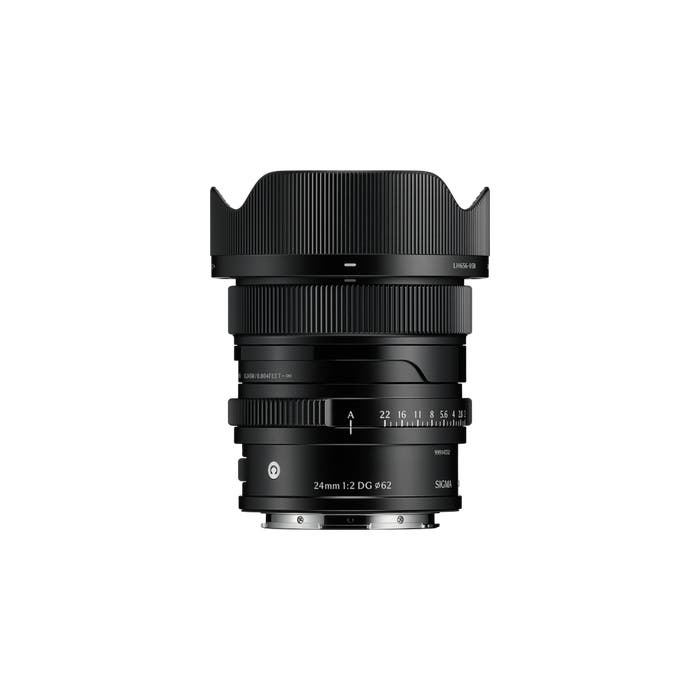
• I series - Premium Compact Primes for mirrorless users
• Exceptional edge-to-edge rendering power
• Sharp, high-contrast results
• Exceptional I series build quality, all-metal
• Compatible with full-frame cameras
• Sharp, fast, robust, wide-angle optic
• Highest level of optical performance
• Minimum focusing distance of 24.5cm
• Mount with dust- and splash-proof structure
• Magnetic Lens Cap and Metal Lens Hood
• Typical Photography: Landscape, Street photography, night sky photography, Events, Interiors
| Productlijn | Contemporary | |
|---|---|---|
| Youtube Videos | ||
| Instagram Widget | ||
| Lensconstructie | 13 elements in 11 groups | |
| Lens Type | Wide Angle | |
| Sensor Size | Full Frame | |
| Beeldhoek | 84.1° (Full-frame), 61.2° (APS-C) | |
| Aantal diafragmalamellen | 9 (Rounded diaphragm) | |
| Minimaal diafragma | F22 | |
| Minimale scherpstelafstand | 24.5 cm | |
| Maximale vergroting | 1:6.7 | |
| Afmetingen (diameter x lengte) | L-Mount ⌀ 70mm x 72mm |
|
| Filtermaat | ⌀ 62mm | |
| Edition number | C021 | |
| Accessoires | Lens Hood LH656-02, Magnetic Metal Lens Cap LCF62-01M, Front Cap LCFIII, Rear Cap LCRII | |
| EAN | L-Mount 085126403690 |
|
I series Premium Compact Primes for mirrorless users
The Sigma I series features full-frame-compatible lenses that offer mirrorless users a new and better alternative, both in the experience of shooting with the lens and in the impressive results it is able to achieve.
One of the key advantages of mirrorless cameras is their smaller form-factor, and this new 24mm optic is designed to be perfectly matched to these more compact systems without sacrificing performance. This combination of superb optical quality with exceptional portability, not previously possible with DSLR systems, will bring new opportunities to this and future generations of photographers.
Simultaneously, Sigma is aware that, in this day and age when we have such huge diversity when it comes to what we use to photograph, as represented by smartphones, people look for something more than a mere act of “taking pictures” when they choose to own a camera and lenses.
Sigma’s excellence in development and processing technologies has been built up since it was founded in 1961, and has become further sophisticated with the introduction of the Sigma Global Vision in 2012. With this as a base Sigma has given careful thought to how photographers use and enjoy their lenses, including optical design, advanced functionality, build quality and the experience of picking up and using the lens, and with all of this carefully considered the I series was born.
20mm, 24mm, 35mm, 50mm and 65mm - five lenses with F2 brightness in the lineup
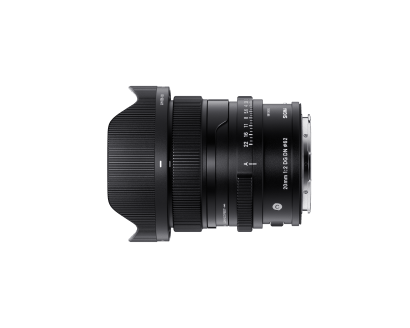

Contemporary
20mm F2 DG DN
New standards of optical performance for the Contemporary line
The Sigma 24mm F2 DG DN | Contemporary, like the Sigma 35mm F2 DG DN | Contemporary and the Sigma 65mm F2 DG DN | Contemporary , combines the highest level of optical performance even at its maximum aperture of F2 and a well-balanced body.
The lens uses two SLD glass elements and one FLD glass element to correct axial chromatic aberration, which is a particular concern with bright lenses. It also incorporates two high-precision glass-molded aspherical elements, made possible by the processing technology of Sigma’s sole production facility in Aizu. This has enabled the total number of lens elements to be kept down and the size and weight of the lens to be reduced, while providing excellent correction of various aberrations.
In anticipation of wide-angle lens applications, Sigma’s optical designers have ensured the lens resolution is extremely high, and is uniform from the center to the periphery of the image. Sagittal coma flare is also well suppressed, giving the lens a high degree of rendering power that makes it ideal for night sky photography.
The AF drive system incorporates a quiet, high-speed stepping motor. This allows photographers to capture every detail of the spacious 24mm scene with light AF.


Use of multiple high-precision aspherical glass molded lenses
The surface of molds for glass molding, which is a process that forms optical components by pressing glass materials at high temperatures, requires ultra-high precision. Sigma uses high-precision molds whose surfaces are controlled with an accuracy of ±5 nanometers (0.000005 mm) or smaller. High precision aspherical glass molded lenses archives both good aberration correction and compact lens size.


Mold for aspherical glass molded lenses
Exceptional I series build quality with a compact form-factor
All I series lenses have an all-metal construction. The precision-cut aluminum parts not only give the barrel a sleek, stylish finish, but provide superb durability that improves the quality of the entire product. Metal materials are also used in internal structures that slide with the operation ring for added robustness. These high-precision components crafted with Sigma’s cutting-edge metalworking technology are also used in Sigma’s CINE LENS line-up for professional cinematographers and provide a tactile, ergonomic feel that make the lens a pleasure to use.
The cover ring between the focus ring and the aperture ring has hairline processing that is also used for the rear cylinder of the Art line. This covering functions as a finger hold when attaching or detaching the lens.
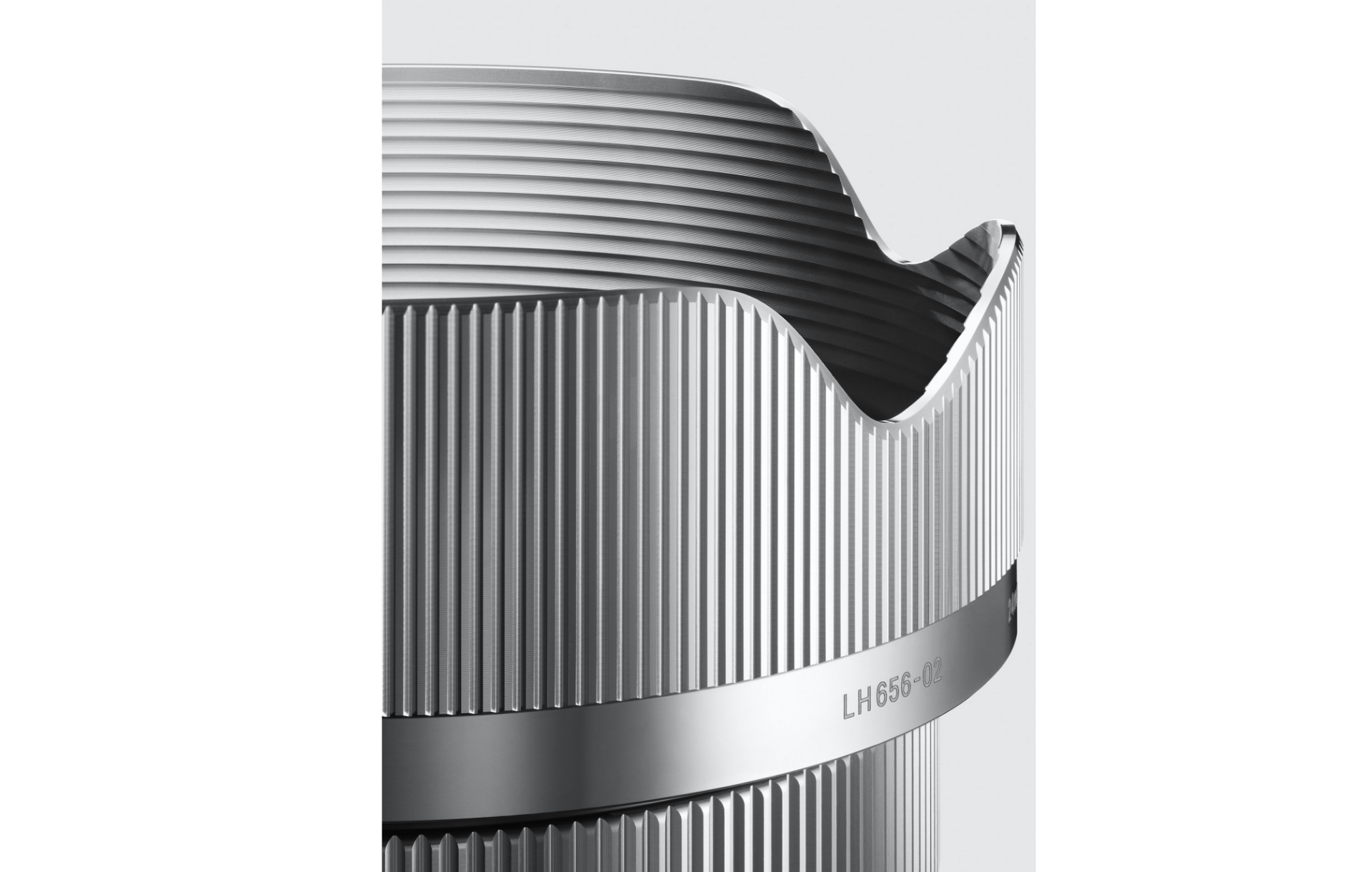

Magnetic metal lens cap
The I series lenses* are accompanied by a dedicated magnetic metal lens cap, in addition to a normal plastic cap. This dedicated metal cap clips to the front surface of the lens magnetically. It is no exaggeration to say that this meticulously crafted cap represents the finishing touch for the I series.
*Except 45mm F2.8 DG DN | Contemporary


Sigma I series | Magnetic Metal lens Cap Promotion Video
*This image is 35mm.
*Cannot be used when a filter is attached.
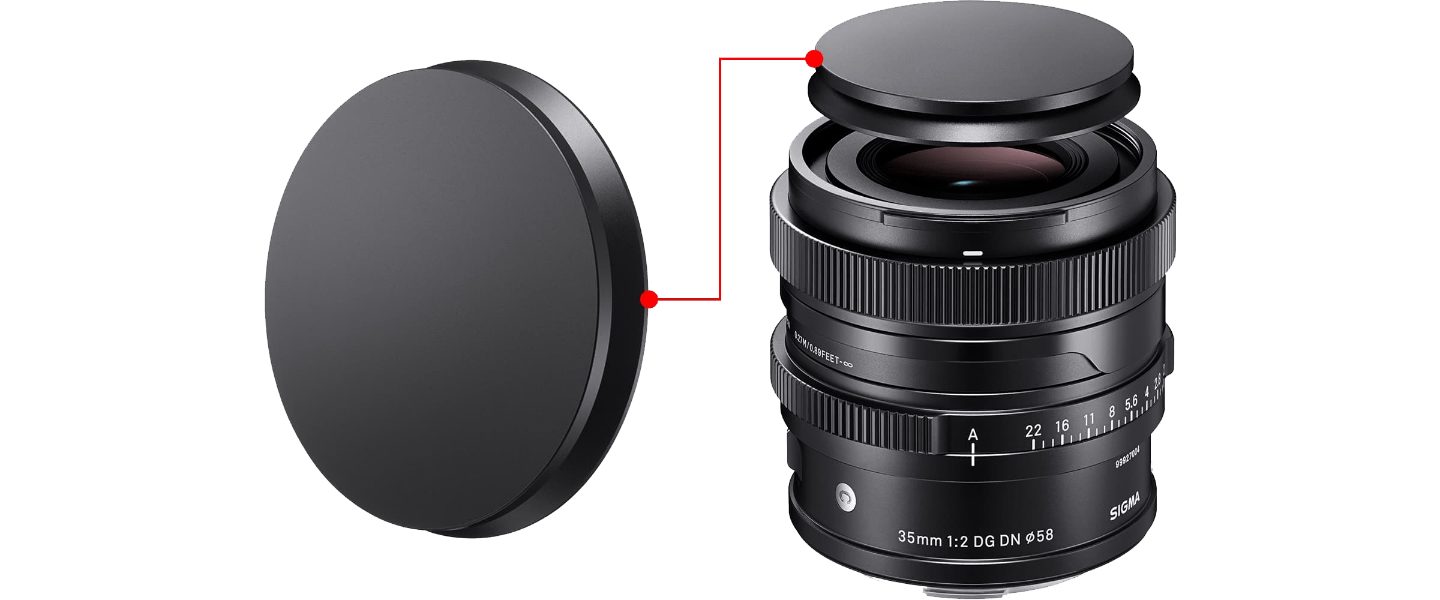

Magnetic metal lens cap holder LENS CAP HOLDER CH-11 (sold separately)
When a cap is removed from the lens it should have a proper place where it can be kept. Using this as a starting point, a cap holder using the magnetic force of the dedicated cap was created.
With the cap attached to the ring plate, and the plate clipped to a bag or belt, the cap is always within easy reach and is less likely to get lost. Plus, its elegant design is a stylish addition to a photographer’s equipment.
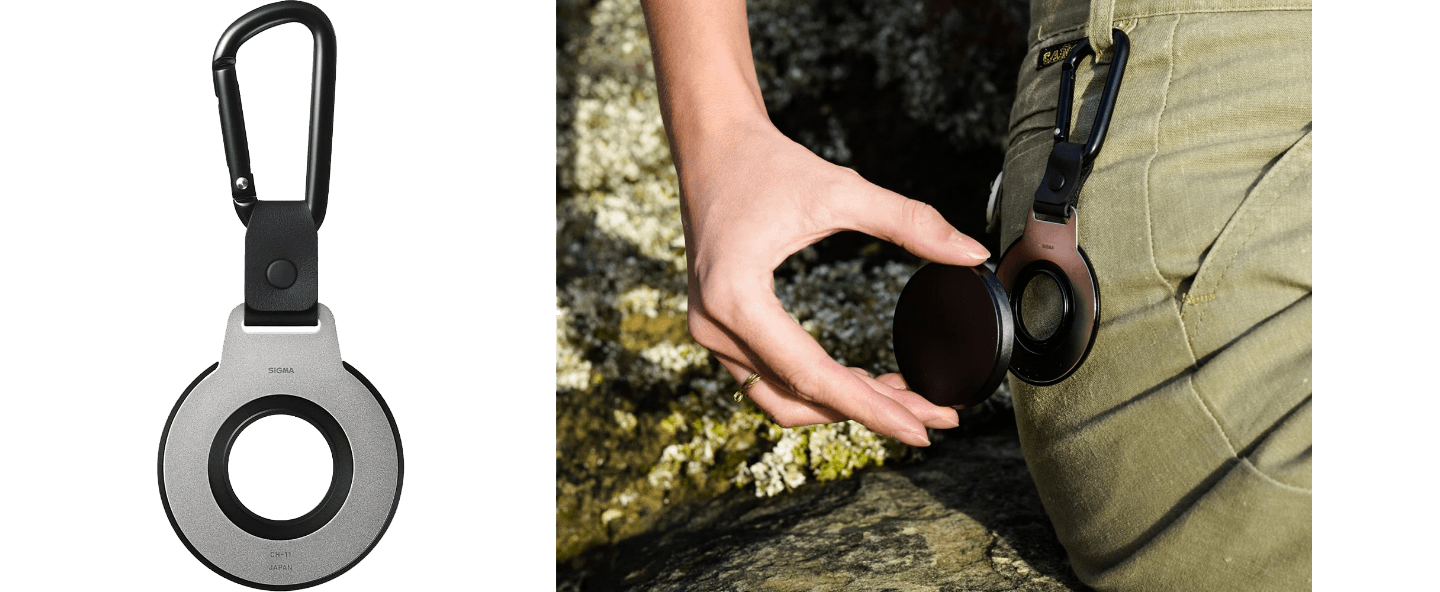

LENS CONSTRUCTION
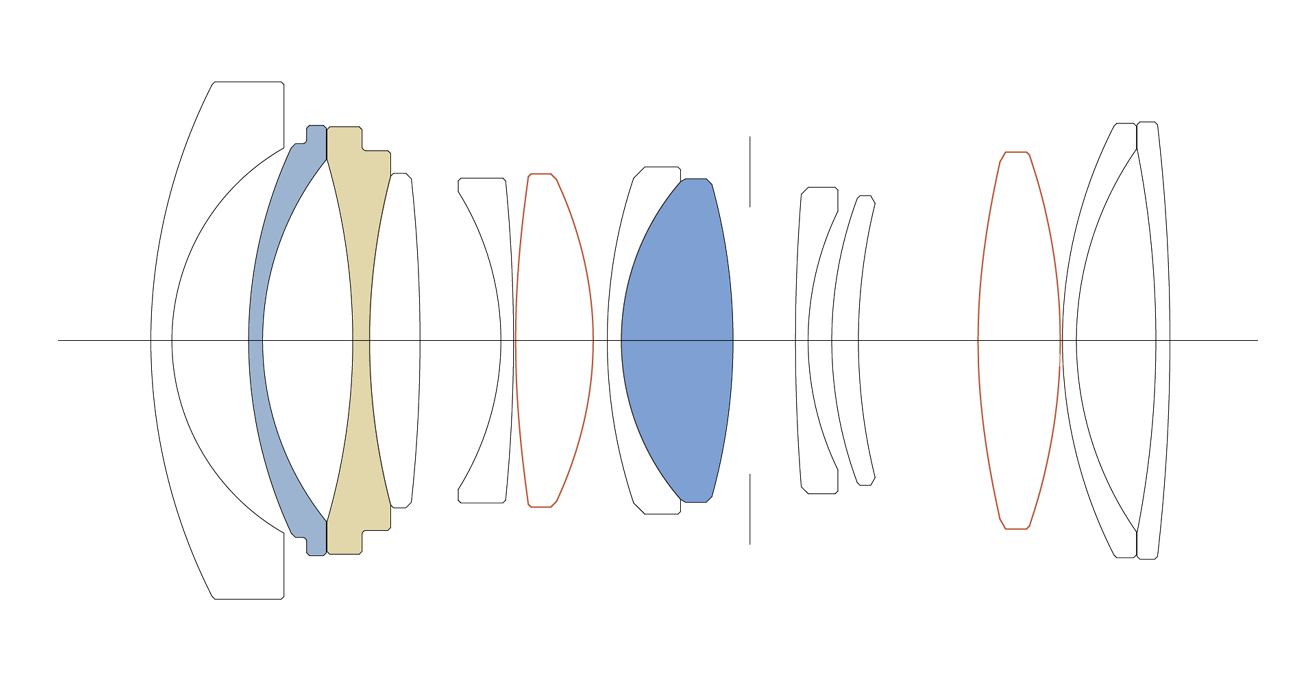

GEOMETRICAL MTF Chart
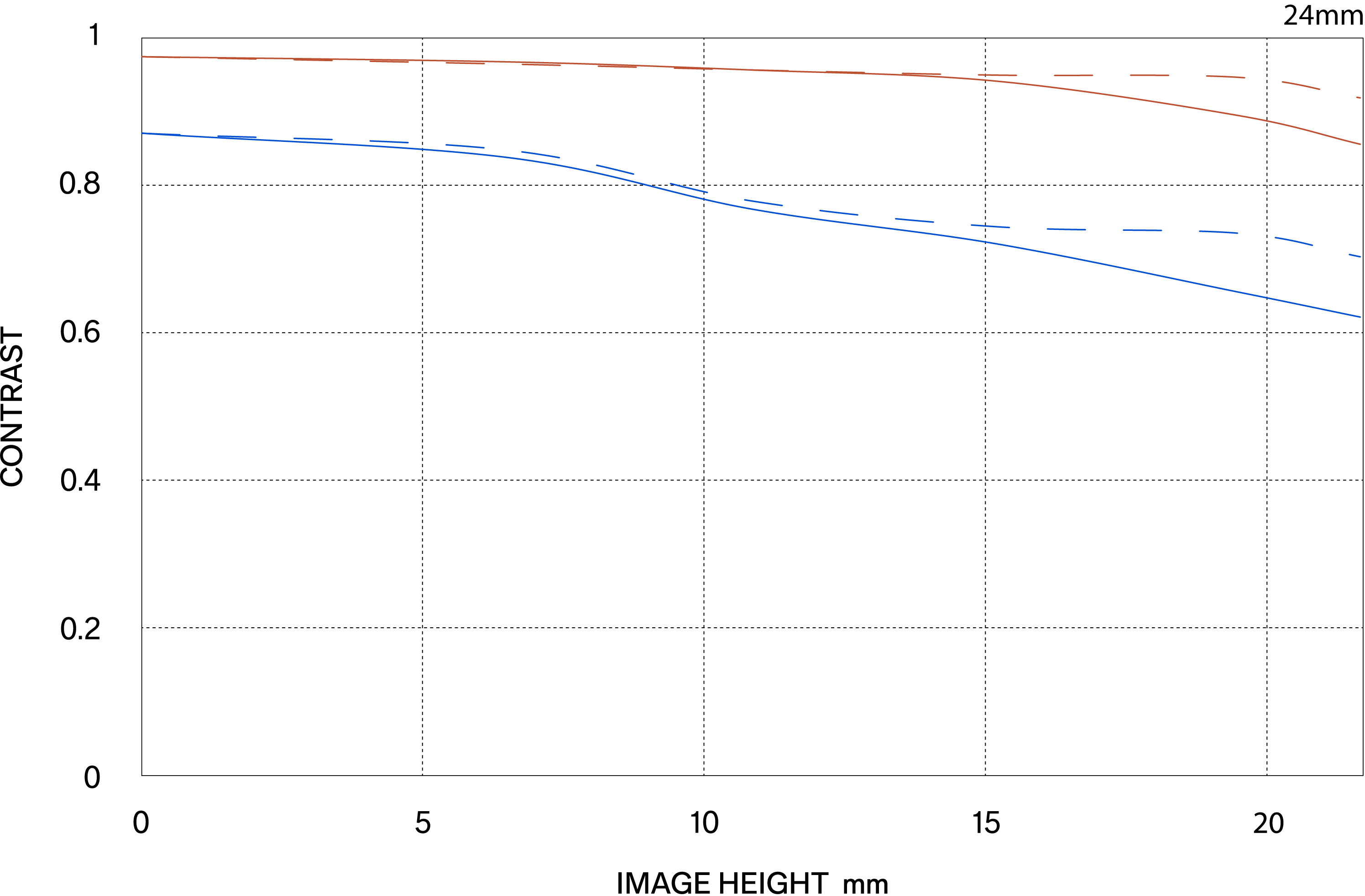

DIFFRACTION MTF CHART
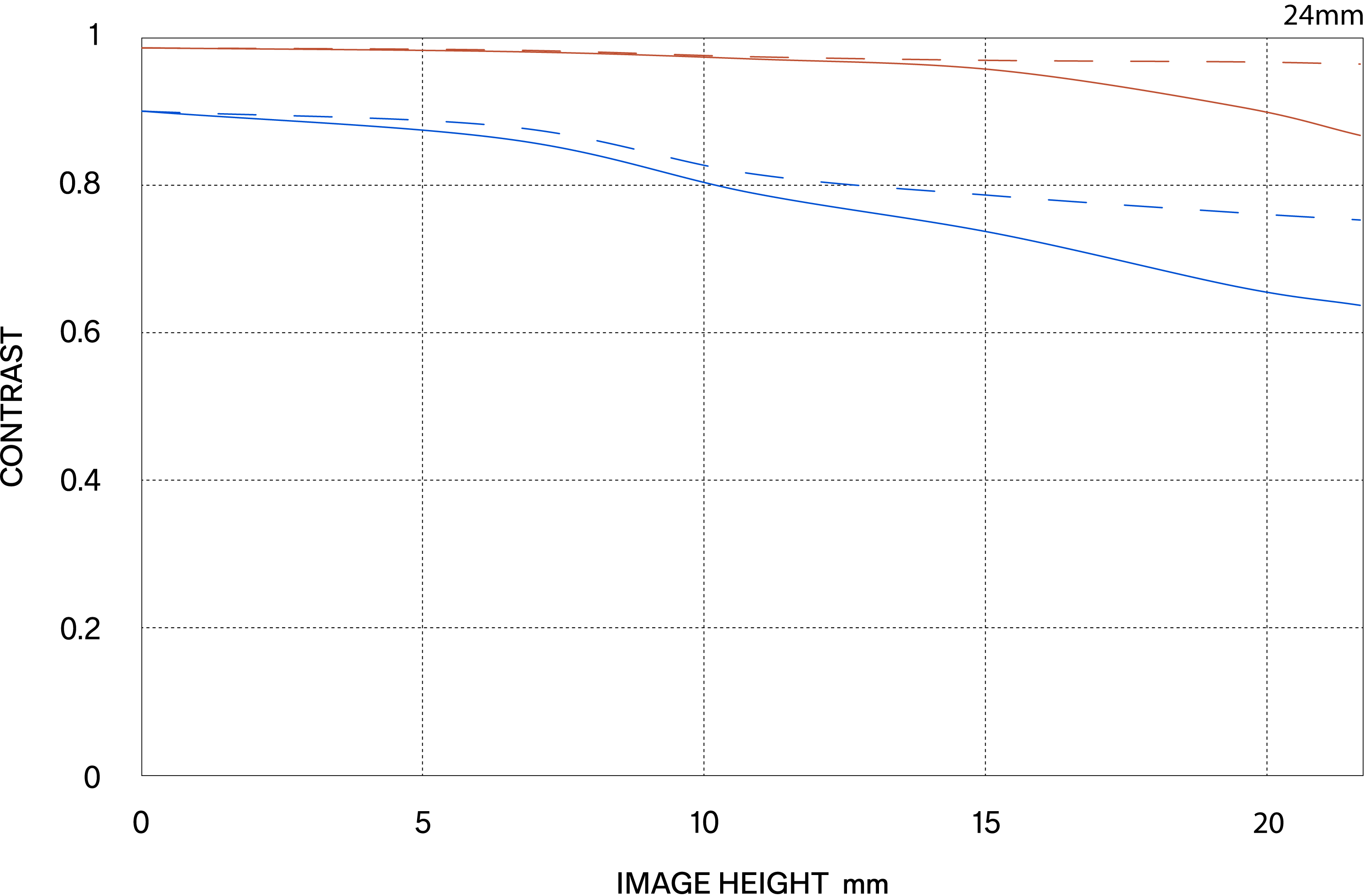

Inner focus system
To increase stability, this lens configuration uses movable internal lens elements that adjust focus without changing the length of the lens barrel.
Stepping Motor
The lens is capable of smooth, quiet and high-speed AF made possible by a stepping motor, as well as supports Face/Eye Detection AF and video AF.
Compatible with Lens Aberration Correction
Matching the optical characteristics of the lens, this function performs in-camera corrections of peripheral illumination, chromatic aberrations, distortion, and more, to further enhance image quality.
*Function available on supported cameras only. Available corrections or auto correction functionality may vary depending on the camera model.
*On cameras where lens aberration correction is controlled with 'ON' or 'OFF' in the camera menu, please set all aberration correction functions to 'ON'(AUTO).
Super Multi-Layer Coating
SIGMA's own Super Multi-Layer Coating suppresses flare and ghosting by preventing reflections with in the lens. All lenses in the current SIGMA range feature this original technology. In digital cameras, flare and ghosting may also be caused by reflections between the image sensor and lens surfaces. Here too, SIGMA's Super Multi-Layer Coating is highly ef fective, assuring images of outstanding contrast.
Aperture ring
Aperture ring, designed to help users work intuitively
Focus Mode Switch
Using this swich, it is possible to switch the focus mode between AF and MF.
Linear focus / Non-linear focus (for L-Mount only)
A focus movement method of interchangeable lenses for mirrorless cameras (DN lens) in relation to the rotational angle of the focus ring during manual focusing.
With "non-linear focus," the amount of focal point movement varies depending on the focus ring rotational speed.
With linear focus, if the focus ring rotational angle is the same, the amount of focal point movement remains the same regardless of the focus ring rotational speed.
Mount with Dust and Splash Resistant Structure
The lens mount incorporates rubber sealing to protect the mount from dust and water drops.
Lens construction: 13 elements in 11 groups, with 1 FLD, 2 SLD and 2 aspherical lens elements
Compatible with high-speed autofocus
Support DMF and AF+MF
Petal-type lens hood (LH656-02)
Magnetic metal lens cap (LCF62-01M)
Compatible with SIGMA USB DOCK UD-11 (sold separately / for L-Mount only)
Designed to minimize flare and ghosting
Every single lens undergoes SIGMA’s proprietary MTF measuring system
9-blade rounded diaphragm
High-precision, durable brass bayonet mount
